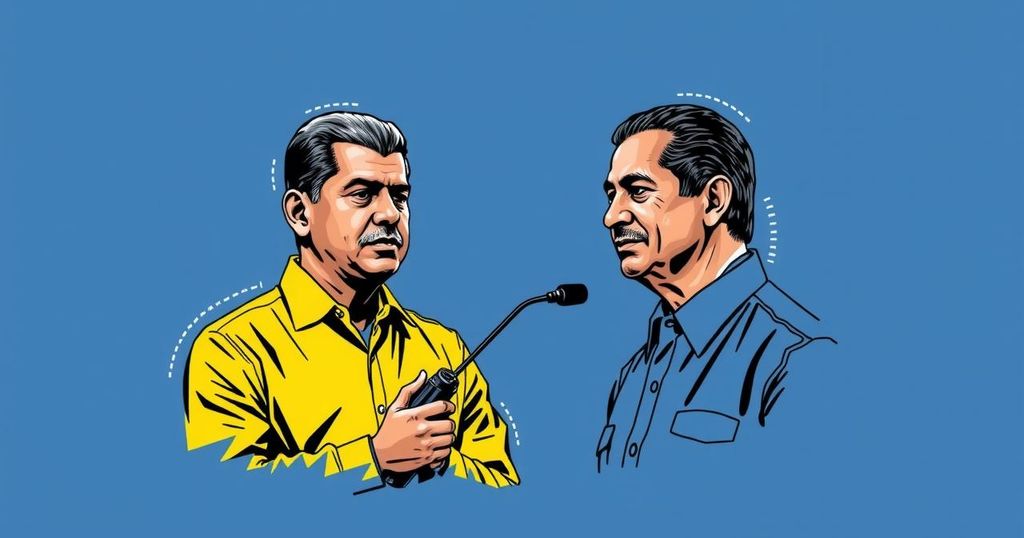The U.S. has sanctioned over 20 Venezuelan officials in order to pressure President Maduro to accept the results of the July election. These new sanctions target military and security leaders, following the recognition of Edmundo Gonzalez as president-elect. The Biden administration continues to focus on promoting democracy and holding the Maduro regime accountable for its actions.
On Wednesday, the United States imposed sanctions on over 20 officials connected to Venezuela’s authoritarian leader, President Nicolas Maduro. This move aims to pressure Maduro into acknowledging the results of the contested presidential election held in July. As of Thursday, it will be exactly four months since this election, and U.S. officials are hopeful that the sanctions will encourage Venezuelan officials to detach from Maduro’s regime and facilitate a democratic change. The targeted sanctions include high-ranking members of the Bolivarian National Guard, Bolivarian National Police, and other security branches. Notable individuals subjected to these sanctions include Maduro’s new chief of staff, Anibal Coronado, Communication Minister Freddy Ñañez, and intelligence chief Alexis Rodriguez. While the U.S. continues to enforce general oil sanctions, specific licenses allowing certain companies like Chevron to operate in Venezuela remain under review. This announcement follows the recognition of Venezuelan opposition leader Edmundo Gonzalez as president-elect, with Secretary of State Antony Blinken asserting that the “Venezuelan people spoke resoundingly on July 28.” The Biden administration remains committed to promoting democracy in Venezuela and holding the regime accountable for its actions, with the awareness of an impending change in U.S. administration in January. Many Venezuelan cabinet members have faced U.S. sanctions since the crisis began in 2017, and Maduro has been subjected to sanctions since July 2017, facing serious legal allegations that have placed a bounty of up to $15 million for information leading to his arrest or conviction.
The ongoing political crisis in Venezuela has escalated since 2017, leading to widespread U.S. sanctions aimed at key officials within the Maduro regime. Despite international condemnation and mounting evidence of authoritarian practices, Maduro has retained power with significant support from military and security forces. In the latest election, which many considered controversial, the U.S. has recognized opposition leader Edmundo Gonzalez as the legitimate president, reflecting ongoing tensions regarding democratic legitimacy in the country. The U.S. has consistently sought to apply pressure to facilitate a shift towards democracy in Venezuela.
In summary, the new U.S. sanctions against Maduro-aligned officials signify a deliberate effort to challenge the Venezuelan regime and promote democratic values following the disputed presidential elections. The sanctions specifically target key military and political figures in hopes of spurring a break from Maduro’s grip on power. As the Biden administration navigates this complex situation, the commitment to uphold democratic principles remains a central focus, with existing sanctions against Maduro still in effect.
Original Source: www.cnn.com






